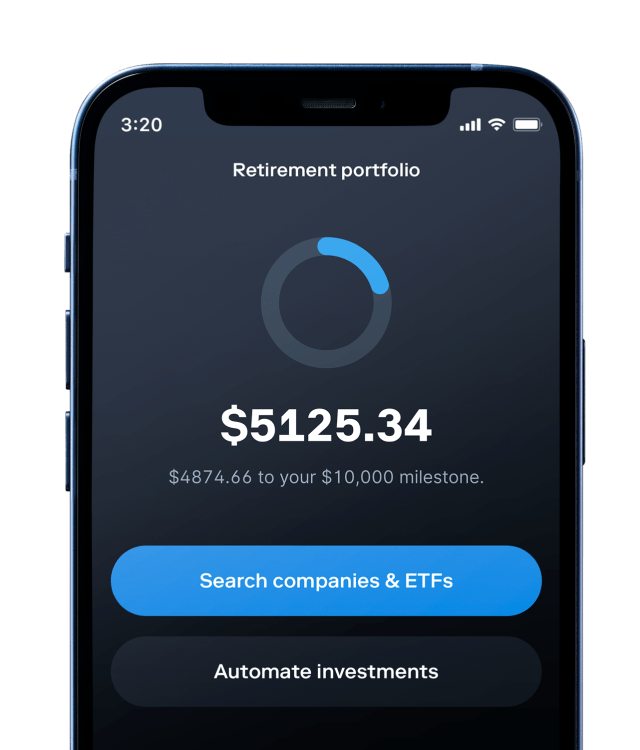
Real estate investment is complicated. There are many legal and tax issues you should consider. There are many variables involved when buying or selling property. The real estate asset manager is crucial in making sure property owners make sound investments. He or she provides constant advice and monitors capital markets. A professional asset manger is a valuable resource.
Asset management is the process for maximising investment returns. It involves using knowledge, resources, health, and other assets to maximize investment returns. Asset managers work to reduce expenses, minimize risk, and maximize rental income streams. These factors can be considered in both top and bottom-up choices.
Asset management professionals specialize in specific types of properties, regions, or operations. They keep track of market trends, forecast future market conditions, and adjust their plans based on them. They negotiate lease terms that are market-benchmark and reduce tenant rollover risk. They also analyze data and produce reports. They also communicate directly with tenants to minimize vacancy.

Asset managers in real estate have years of experience and the knowledge to maximize the return for their clients. Asset managers work with both full-time and small investors. They can be employed in investment companies, buy side asset management firms, independent real-estate institutions, or as consultants. Asset managers work to protect landlords from annual operating cost increases and shield them from the expense of costly capital repairs. Stress tests are also conducted by asset managers for investor portfolios.
Three phases are required for real estate asset management. The first phase is asset choice. The second is asset selection. Finally, the third is asset management. Asset managers should also have a good understanding of capital markets, financing options, and other financial information. Asset managers need to know how to evaluate qualitative and quantitative values to make good investment decisions. They must also be capable of contextualizing data for stakeholders.
The real estate asset manger performs market research and analyses data to generate forecast models. He or she also provides reliable advice. Investors receive regular updates on the performance of their portfolios from him or her. This information helps you make the best economic decisions.
Asset managers also monitor capital markets and predict the future of rental market. They make adjustments based on market conditions and anticipate vacancies. They can also negotiate lease extensions or stagger lease expirations. They will also recommend tax appeals to avoid reassessments. They also manage RFPs for service providers to ensure they are receiving competitive pricing. The asset manager may work from a corporate office, a skyscraper, or a condominium.

A real estate asset manager can draw on a professional network that includes industry experts and investors. The manager can offer invaluable advice to rental property investors. He or she is available to answer questions, discuss career options, and offer insight into the industry.
FAQ
What is the easiest passive source of income?
There are many different ways to make online money. Most of them take more time and effort than what you might expect. How can you make extra cash easily?
Find something that you are passionate about, whether it's writing, design, selling, marketing, or blogging. That passion can be monetized.
For example, let's say you enjoy creating blog posts. Make a blog and share information on subjects that are relevant to your niche. Then, when readers click on links within those articles, sign them up for emails or follow you on social media sites.
This is affiliate marketing. There are lots of resources that will help you get started. Here's a collection of 101 affiliate marketing tips & resources.
As another source of passive income, you might also consider starting your own blog. Again, you will need to find a topic which you love teaching. You can also make your site monetizable by creating ebooks, courses and videos.
Although there are many ways to make money online you can choose the easiest. Make sure you focus your efforts on creating useful websites and blogs if you truly want to make a living online.
Once you've created your website promote it through social media like Facebook, Twitter LinkedIn, Pinterest Instagram, YouTube, and many other sites. This is content marketing. It's an excellent way to bring traffic back to your website.
How does a rich person make passive income?
There are two ways you can make money online. The first is to create great products or services that people love and will pay for. This is called earning money.
Another way is to create value for others and not spend time creating products. This is what we call "passive" or passive income.
Let's assume you are the CEO of an app company. Your job is to create apps. But instead of selling the apps to users directly, you decide that they should be given away for free. That's a great business model because now you don't depend on paying users. Instead, advertising revenue is your only source of income.
To sustain yourself while you're building your company, you might also charge customers monthly fees.
This is how successful internet entrepreneurs today make their money. They focus on providing value to others, rather than making stuff.
Why is personal financing important?
If you want to be successful, personal financial management is a must-have skill. We live in a world where money is tight, and we often have to make difficult decisions about how to spend our hard-earned cash.
Why should we save money when there are better things? Is there something better to invest our time and effort on?
Both yes and no. Yes because most people feel guilty about saving money. You can't, as the more money that you earn, you have more investment opportunities.
Spending your money wisely will be possible as long as you remain focused on the larger picture.
It is important to learn how to control your emotions if you want to become financially successful. You won't be able to see the positive aspects of your situation and will have no support from others.
Also, you may have unrealistic expectations about the amount of money that you will eventually accumulate. This is because you aren't able to manage your finances effectively.
Once you've mastered these skills, you'll be ready to tackle the next step - learning how to budget.
Budgeting refers to the practice of setting aside a portion each month for future expenses. By planning, you can avoid making unnecessary purchases and ensure that you have sufficient funds to cover your bills.
Once you have mastered the art of allocating your resources efficiently, you can look forward towards a brighter financial tomorrow.
What is personal finance?
Personal finance refers to managing your finances in order to achieve your personal and professional goals. This means understanding where your money goes and what you can afford. And, it also requires balancing the needs of your wants against your financial goals.
These skills will allow you to become financially independent. This means that you won't have to rely on others for your financial needs. You don't need to worry about monthly rent and utility bills.
And learning how to manage your money doesn't just help you get ahead. It will make you happier. Feeling good about your finances will make you happier, more productive, and allow you to enjoy your life more.
So who cares about personal finance? Everyone does! Personal finance is a very popular topic today. Google Trends reports that the number of searches for "personal financial" has increased by 1,600% since 2004.
People today use their smartphones to track their budgets, compare prices, build wealth, and more. They read blogs such this one, listen to podcasts about investing, and watch YouTube videos about personal financial planning.
According to Bankrate.com Americans spend on average four hours per day watching TV, listening and playing music, browsing the Internet, reading books, and talking to friends. That leaves only two hours a day to do everything else that matters.
You'll be able take advantage of your time when you understand personal finance.
How much debt are you allowed to take on?
It is vital to realize that you can never have too much money. You will eventually run out money if you spend more than your income. Because savings take time to grow, it is best to limit your spending. You should cut back on spending if you feel you have run out of cash.
But how much should you live with? While there is no one right answer, the general rule of thumb is to live within 10% your income. This will ensure that you don't go bankrupt even after years of saving.
If you earn $10,000 per year, this means you should not spend more than $1,000 per month. You should not spend more than $2,000 a month if you have $20,000 in annual income. For $50,000 you can spend no more than $5,000 each month.
This is where the key is to pay off all debts as quickly and easily as possible. This applies to student loans, credit card bills, and car payments. After these debts are paid, you will have more money to save.
It's best to think about whether you are going to invest any of the surplus income. You could lose your money if you invest in stocks or bonds. But if you choose to put it into a savings account, you can expect interest to compound over time.
As an example, suppose you save $100 each week. This would add up over five years to $500. You'd have $1,000 saved by the end of six year. You would have $3,000 in your bank account within eight years. In ten years you would have $13,000 in savings.
Your savings account will be nearly $40,000 by the end 15 years. Now that's quite impressive. You would earn interest if the same amount had been invested in the stock exchange during the same period. Instead of $40,000 in savings, you would have more than 57,000.
That's why it's important to learn how to manage your finances wisely. You might end up with more money than you expected.
What side hustles can you make the most money?
Side hustle is an industry term that refers to any additional income streams that supplement your main source.
Side hustles are very important because they provide extra money for bills and fun activities.
Side hustles are a way to make more money, save time, and increase your earning power.
There are two types side hustles: active and passive. Online businesses like e-commerce, blogging, and freelance work are all passive side hustles. You can also do side hustles like tutoring and dog walking.
Side hustles that are right for you fit in your daily life. Start a fitness company if you are passionate about working out. You might consider working as a freelance landscaper if you love spending time outdoors.
There are many side hustles that you can do. Look for opportunities where you already spend time -- whether it's volunteering or taking classes.
Why not start your own graphic design company? You might also have writing skills, so why not start your own ghostwriting business?
Do your research before starting any side-business. You'll be ready to grab the opportunity when it presents itself.
Side hustles aren’t about making more money. Side hustles are about creating wealth and freedom.
There are so many opportunities to make money that you don't have to give up, so why not get one?
Statistics
- These websites say they will pay you up to 92% of the card's value. (nerdwallet.com)
- While 39% of Americans say they feel anxious when making financial decisions, according to the survey, 30% feel confident and 17% excited, suggesting it is possible to feel good when navigating your finances. (nerdwallet.com)
- 4 in 5 Americans (80%) say they put off financial decisions, and 35% of those delaying those decisions say it's because they feel overwhelmed at the thought of them. (nerdwallet.com)
- U.S. stocks could rally another 25% now that Fed no longer has ‘back against the wall' in inflation fight (marketwatch.com)
- According to the company's website, people often earn $25 to $45 daily. (nerdwallet.com)
External Links
How To
How To Make Money Online
The way people make money online today is very different than 10 years ago. You have to change the way you invest your money. There are many ways to earn passive income, but most require a lot of upfront investment. Some methods are easier than other. However, there are many things you need to do before investing your hard-earned funds in anything online.
-
Find out what type of investor are you. PTC sites, which allow you to earn money by clicking on ads, might appeal to you if you are looking for quick cash. On the other hand, if you're more interested in long-term earning potential, then you might prefer to look at affiliate marketing opportunities.
-
Do your research. Research is essential before you make any commitment to any program. Review, testimonials and past performance records are all good places to start. You don’t want to spend your time and energy on something that doesn’t work.
-
Start small. Do not jump into a large project. Instead, start off by building something simple first. This will help you learn the ropes and determine whether this type of business is right for you. Once you feel confident enough to take on larger projects.
-
Get started now! It's never too late to start making money online. Even if it's been years since you last worked full-time, you still have enough time to build a solid portfolio niche websites. All you need is a good idea and some dedication. Get started today and get involved!